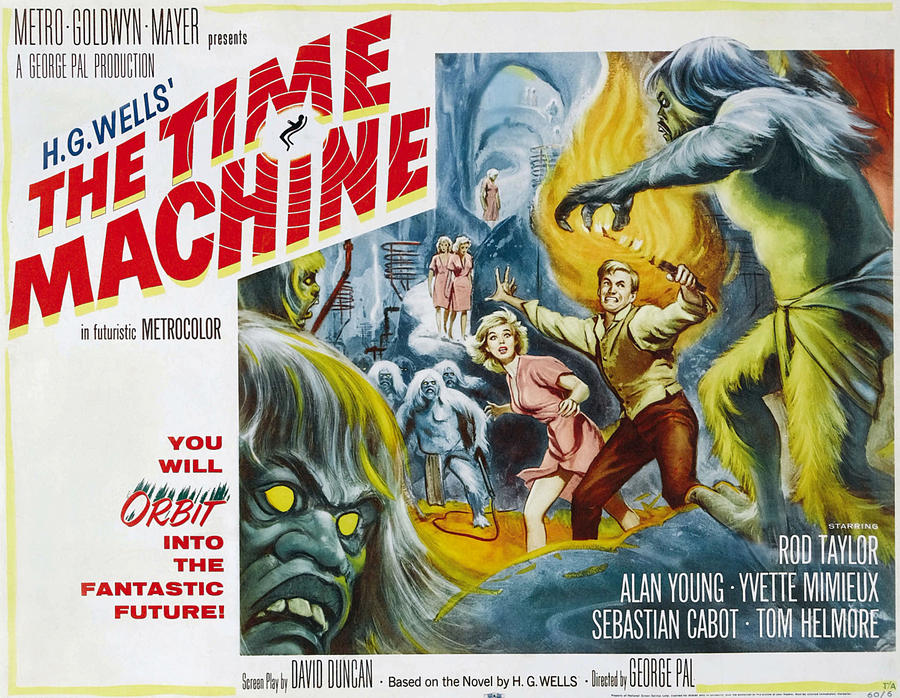
Time travel in fiction
Time travel is a common theme in fiction, mainly since the late 19th century, and has been depicted in a variety of media, such as literature, television, film, and advertisements.[1][2]
"Time warp" redirects here. For other uses, see Time Warp (disambiguation).The concept of time travel by mechanical means was popularized in H. G. Wells' 1895 story, The Time Machine.[3][4] In general, time travel stories focus on the consequences of traveling into the past or the future.[3][5][6] The premise for these stories often involves changing history, either intentionally or by accident, and the ways by which altering the past changes the future and creates an altered present or future for the time traveler upon their return.[3][6] In other instances, the premise is that the past cannot be changed or that the future is determined, and the protagonist's actions turn out to be inconsequential or intrinsic to events as they originally unfolded.[7] Some stories focus solely on the paradoxes and alternate timelines that come with time travel, rather than time traveling.[5] They often provide some sort of social commentary, as time travel provides a "necessary distancing effect" that allows science fiction to address contemporary issues in metaphorical ways.[8]